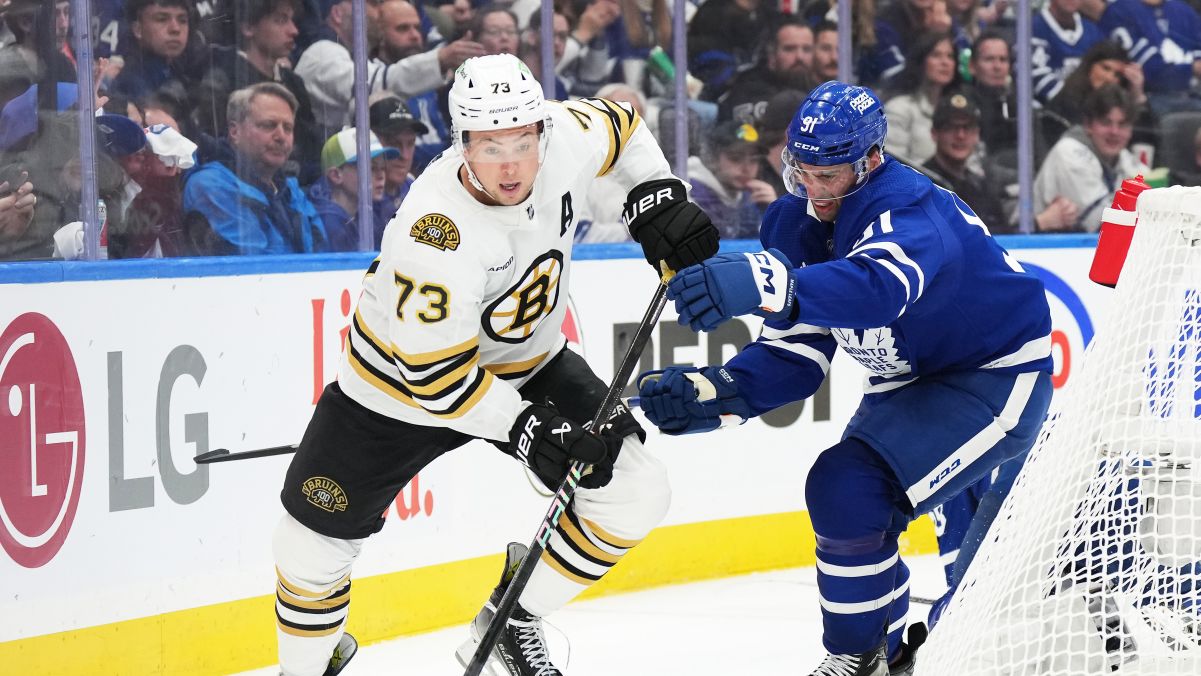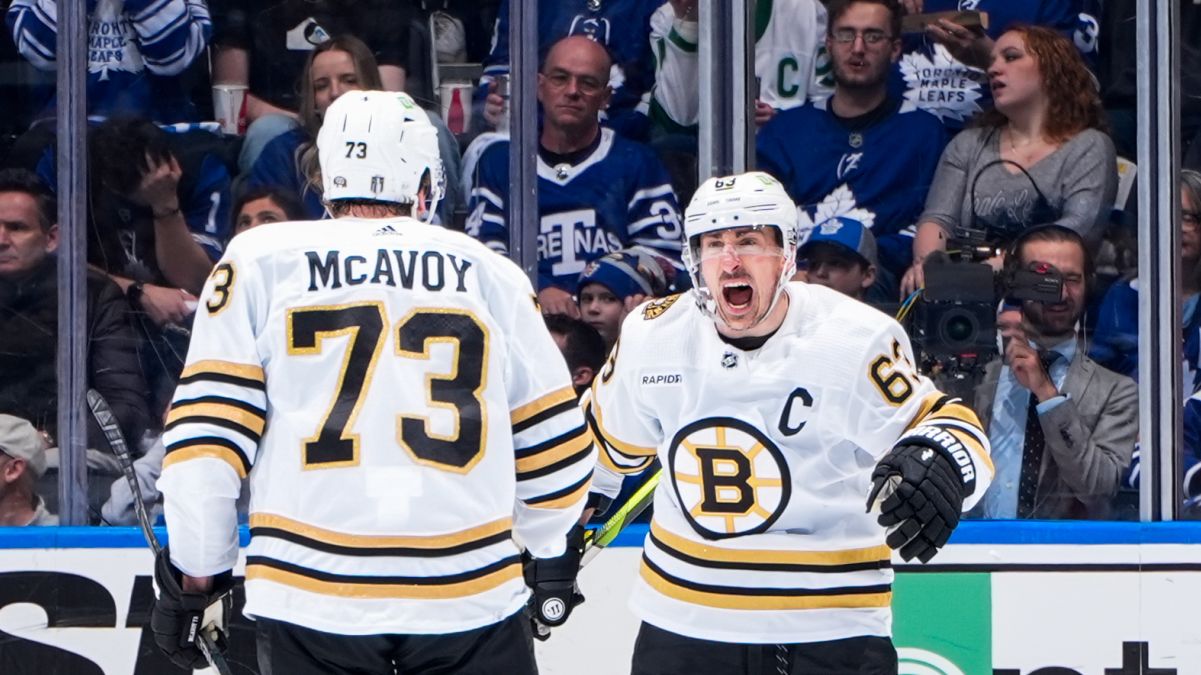While the NHL made big news last week with the unveiling of its plan to return to play with a 24-team tournament expected to get going this summer — barring any unforeseen COVID-19 setbacks — there is still plenty to be hashed out.
The NHLPA and NHL will need to come to agreement on other aspects of the league’s return-to-play plan and teams will need to begin skating, practicing and preparing to play in the postseason tournament that’s still months away.
The NHL is expected to make a formal announcement that the 31 NHL teams can begin Phase 2 with small practice groups at NHL facilities sometime over the next few weeks, and the word is that NHL training camp won’t begin prior to a July 10 start date. This means we could be seeing Stanley Cup playoff hockey in August and September before a Stanley Cup is awarded to the winner of the 2019-20 NHL season sometime in the fall.
Get the latest news and analysis on all of your teams from NBC Sports Boston by downloading the My Teams App
The real question, though, is how safe it’s going to be for players, referees, team and league personnel and anybody else essential that’s involved to help make these NHL games happen in designated hub cities once they are up and running.
Bruins captain Zdeno Chara acknowledged there is still plenty left to go when it comes to the issues of health and well-being while talking about a return to play with Bruins reporters last week.
“These are the questions that still need to be processed. After the approval of the format there are other steps that need to be gone over,” said Chara. “I’m sure this is one of those things that everybody needs to be aware of that the safety and health of players, staff, coaches and everybody working around [the games] needs to be taken care of. Those are the questions that will need to be asked and answered.”
Some NHL players like Leafs winger Mitch Marner already expressed concern about any NHL personnel with underlying health conditions like Montreal Canadiens forward Max Domi, who has Type 1 Diabetes. Clearly there are also some older NHL coaches like Claude Julien, Joel Quenneville and John Tortorella who could be more at risk if a COVID-19 outbreak were to happen during these playoffs, and that doesn’t even take into account older NHL assistant coaches as well.
“I’m all down for starting everything up [with the NHL season again]. Let’s rock. [But] what if someone gets sick and dies? It's awful to think about, but still," said Marner of Domi, his former London Knights teammate, a few weeks ago during a video chat with fans. "There's dudes like [Max] Domi who has diabetes. If he gets it, he's in [a predicament]."
Boston Bruins
TSN 690 radio host Tony Marinaro admitted on an NBC Sports Boston Zoom call with James Murphy and yours truly last week that it’s a “scary” scenario for the Canadiens given their situation with players and coaches. It wouldn’t shock anyone if there may even be some hesitant players who opt not to return to play this summer depending on their individual health situations and concern level.
“I just got off the phone [on-air] about an hour ago with Dr. Leighanne Parkes, who is an infectious disease specialist at the Jewish General Hospital in Montreal and I asked her about Max Domi. I asked her about Max Domi because as we know with this COVID-19 that it’s mostly the elderly that are losing their lives. But if there is somebody losing their life before the age of 80, then it’s someone with an underlying health condition. Max Domi is a Type-1 diabetic and that is scary and extremely dangerous.
“I asked her about the [21-page] document put out by the NHL for their health protocols [during the return to play] and she said it was a well thought out document. She said the NHL has covered most of the bases, if not all of them, and it was really well thought out. But at the end of the day, it’s going to come down to individual choice, Max Domi’s individual choice. But it really is scary and it really is dangerous for a player with a pre-existing condition.
Even though the protocol is there and the document is there and they take all the safety measures, do you want to take the risk? Would I? No. Would you? Probably not. But if there is one thing our experience has shown us, we’re not wired like these [NHL players]. These guys want to play. I can’t speak for Max Domi, but if I were a betting man I’d bet that he would play.
Domi himself admitted it was on his mind while talking it over on a conference call with reporters a few weeks ago amidst the COVID-19 outbreak and subsequent NHL work stoppage.
"Being a Type 1 diabetic, it's something that raises some concern. But you really don't know how everyone's going to be affected by this disease. Being a Type 1 doesn't change much. I would handle myself the same way as if I didn't have [diabetes]," said the 25-year-old Domi, who is third on the Canadiens with 17 goals and 44 points in 71 games this season. "Everyone is affected by this in their own way. A lot of people have been struggling.
“A lot of people have suffered loss. It's been a really tough time for everyone, and you have to be sensitive to that. You have to understand that this is very real. People have gotten sick from this. People have died from this. All you can really do is do your part, stay at home, stay safe and be respectful of any rules that were put in place.”
The good news is that most teams, and subsequently most players, will be eliminated from playoff contention within the first few weeks of a Stanley Cup playoff return-to-play. The attrition of playoff rounds will quickly lessen the amount of people, both quarantined and coming into contact with each other, present at the hub cities.
A few shortened playoff series at the start of the NHL tournament could make that an even more expeditious process that’s as safe as it can possibly for everybody involved. But at the end of the day it will be about some level of risk for each and every NHL player involved.
It all boils down to a very personal decision — and it shouldn't be all that surprising if not every player signs up to assume that COVID-19 risk once play does resume.


